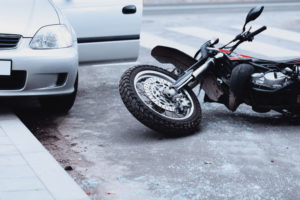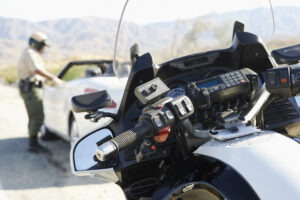I really wanted to avoid blogging about last week’s Virginia bus crash, because I am reluctant to be lumped in with the lawyers who blog about tragedies to get cases. However, as the news about Sky Express, the bus company responsible for the crash, unfolds, it presents the perfect opportunity to discuss the beneficial role of punitive damages in our free market society. According to the Richmond Times-Dispatch, federal inspections of Sky Express, a Charlotte, NC-based tour bus company, federal inspections show that Sky Express had 29 fatigued-driver and driver fitness violatations so severe that the company was required to pull its buses from service. Driver fatigue was the cause of last Tuesday’s fatal Sky Express crash that killed five and injured over 50 people. Passengers who survived the crash told state police that Kin Yiu Cheung, the bus driver, complained on a cell phone call to a friend about how tired he was, and that he didn’t have enough turn-around time between trips. He consumed many cups of coffee and cans of Red Bull to try to wake up. Cheung told police that the trip commenced from Greensboro, NC at 10:30 p.m., proceeded to Raleigh, departed from Raleigh at 12:00 midnight, and was destined to arrive in New York City at 9:00 a.m. Cheung was the sole driver and was so tired that the 3 1/2 hour trip from Greensboro to Caroline County, Virginia took 5 hours as a result of multiple extra stops Cheung needed to make.
Federal Regulations say drivers can stay behind the wheel a maximum of 10 hours after eight consecutive hours off duty. Cheung was scheduled to drive at least 11 1/2 straight hours and was already sleepy when the trip commenced.
So how has Sky Express responded to being closed down by the Department of Transportation? It has been caught re-painting its Sky Express buses and booking trips under a separate corporate name using the same drivers. Sky Express has for years exhibited this type of cavalier attitude toward safety and federal regulations. The Federal Motor Carrier Safety Administration’s Safety Measurement System website contains data on bus carrier’s safety performance at http://al.fmcsa.dot.gov/SMS/Data/Search.aspx
On this FMCSA site, an alert symbol indicates that a company has exceeded the agency’s threshold for intervening in a safety category, or has been issued a violation during the last 12 months. Passengers should check this site and avoid carriers with records or violating driver fatigue, unsafe driving, controlled substances or alcohol, and vehicle maintenance requirements. Sky Express had so many violations that it had been ordered by the agency to discontinue operations. On the other hand, Greyhound Lines, Inc. has no alert symbols on its FMCSA profile.
This brings me to my point about punitive damages. Obviously, the federal regulatory systems was not enough of a deterant to Sky Express. Even after killing people in the Virginia crash, Sky Express immediately looked for a way around the system. That is not fair to Greyhound or the other bus lines that follow the safety rules. In a free market, Greyhound and the other safe bus lines should benefit and companies like Sky Express should suffer for the laters’ reckless indifference to safety issues. But in this era where any attempt at regulation is met with scorn, the best deterant to Sky Express and companies like it is meaningful civil liability through the court system, including punitive damages. A jury of peers of the victims of Sky Express’s reckless indifference to safety issues is the best free market solution to this problem. Being hit with punitive damages verdicts will not only punish Sky Express for its behavior, but also reward the safe companies like Greyhound for their safe behavior. Regulation of federal transportation is necessary, but the free market offers the best incentive for safe behavior.













Comments for this article are closed.